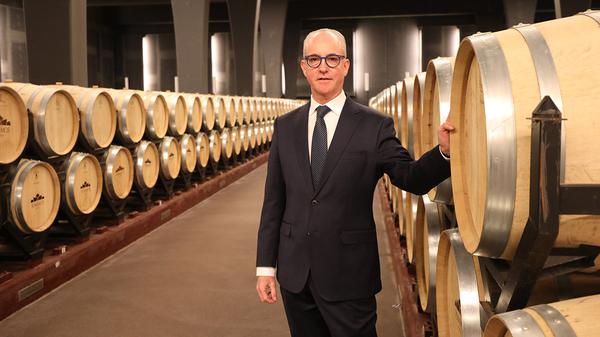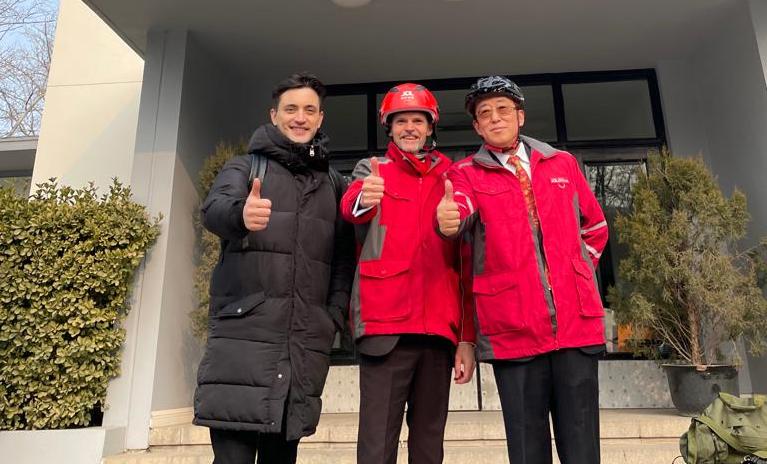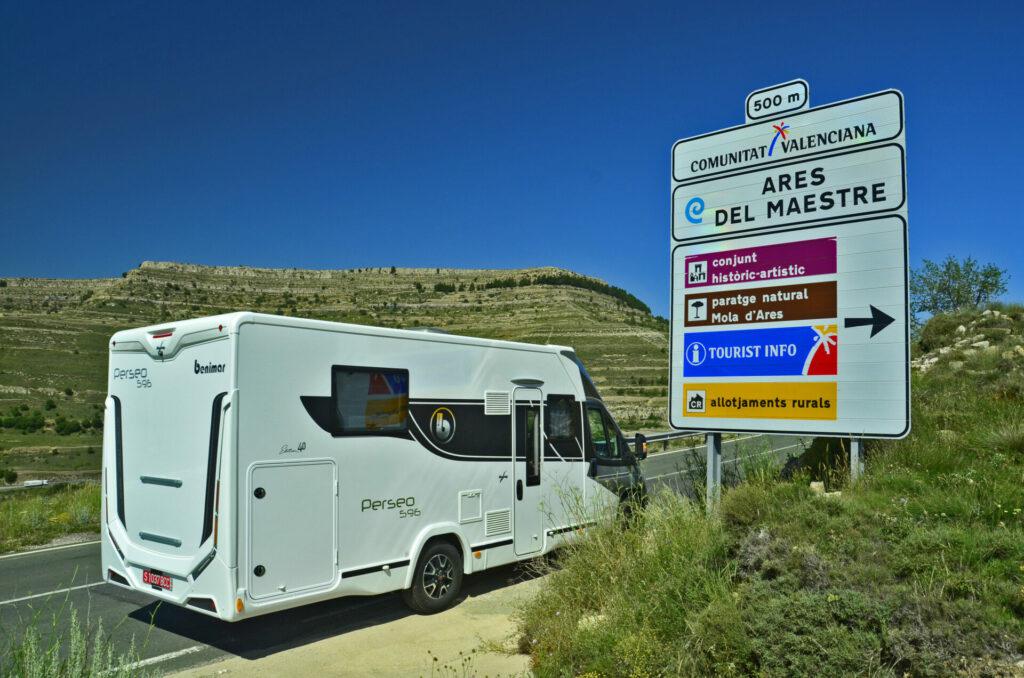Jorge Costa, in the barrel room at Bodega Sommos.// Ángel de Castro
Home → fancy clothes → Spanish meat is an e...
Spanish meat is an example to follow in quality and animal welfare
-Yes. It is a company that complements us very well. Above all, in the industrial part, since it allows us to be more flexible in formats, with the best machines and professionals. This purchase also complements us in exports and allows us to delve into a new product range in which we were not, that of cheeses.
–An acquisition strategy to verticalize that has intensified in recent years...
-In a few years we have gone from being a company specialized in pork to a food company. We verticalize so that the product that reaches the final consumer is natural, which is the main benefit of our control “from the field to the table”.
–They began this roadmap with the purchase of the old Cárnicas Toni Josep, in 2016, which provided them with a slaughterhouse and a cutting room...
–This was the beginning of verticalization. Before we were ranchers, but with the purchase of this company, today Costa Food Meat, we began to form an integrated chain. From there, we have continued verticalizing. In 2017 we bought Casademont; in 2018, Industrias Cárnicas Villar; in 2019, Sausages La Nuncia; in 2020, 50% of Grupo Aviserrano; in 2021, Roler and La Alegría Riojana...
–How have you fared in the pandemic?_The agri-food sector, in general, well...
-Our professionals have made a great effort to ensure that supermarkets are supplied with meat products. I thank you because we have had to multiply ourselves and work very long hours to supply meat to the entire large distribution sector.
–What has been the billing?
–2020 was a good year. In 2021 we have increased turnover, going from 1,500 million to 1,750. However, the pig sector has suffered somewhat more due to the turbulence in foreign markets.
-What do you think when you see that meat consumption is demonized?
–The meat sector has been making a very important effort for years to improve the parameters of animal welfare, meat quality and food safety, to ensure that eating meat is not a luxury within the reach of a few. This effort has placed us among the main world leaders.
-The Minister of Consumption spoke in a recent interview in The Guardian of macro farms and associated them with poorer quality, pollution and animal abuse.
–In our case, we are from a rural area, from Fraga, here in Huesca, and we are the first interested in ensuring animal welfare and environmental, social and economic sustainability in our territory. Our integrated farms are based on the family model, we listen to the owners, who are the ones who know the animal best. Spanish meat companies are European leaders. We are selling to the whole world and we are an example to follow in Europe in relation to guarantees and certifications of quality and animal welfare.
It is a very regulated sector...

– It is highly regulated. We are the second country in the European Union in both production and export, only behind Germany. And this, I assure you, is not done by offering poor quality meat or mistreating animals. In order to export to a country, they come to authorize and audit you. If we did it wrong, we would not export anything, they would not buy from us. And yet, we are taking Spanish food products to the whole world with the highest quality standards._And you are audited and authorized not only by countries, at the Government level, but also by large distribution companies.
-Part of the controversy focuses on the size of the farms...
-In this aspect, everything is regulated by European legislation, which is the most demanding in the world, and in Spain it is strictly complied with. In addition, very demanding animal welfare criteria are applied on our farms. Grupo Costa was the first Spanish white pig meat producer to obtain the AENOR animal welfare certificate at its farms, slaughterhouses, cutting plants and processing factories.
-In the orbit of Grupo Costa there are about 1,300 farms...
-Correct. We are farmers, we work in the fields and we are the first interested in everything being done well, including family reconciliation. Before, when only one family worked on a farm, they worked on Saturdays, Sundays, Christmas, Epiphany. It couldn't be rotated. We promote pig facilities of 10-15 people in which they can rotate and, of course, have rest and vacations, favoring the work-life balance of our farmers.
–And what is your commitment to sustainability?
-We are very psyched. We have been the first company in the sector that has taken out a patent to replace 90% of plastic with recyclable cardboard. We are investing a lot of money, among other things, in sustainability policies for the reduction of plastic, the minimization of water consumption, energy efficiency, the use of green energy, self-consumption, the design of processes based on circular economy, etc.
–With the purchase of Juan Luna, the group has around 5,000 employees, most of them in very small municipalities. To what extent do your activities help mitigate the problem of depopulation?
–60% of our employees work in towns with less than 5,000 inhabitants and we help establish the population. Before, it seemed that only older people could stay in rural areas and that young people wanted to go to the capitals. Now, many young and highly educated people are returning to rural areas to run farms, feed mills, meat industries, etc. We have many chemists, agronomists, computer scientists, veterinarians... and they make a very good living. Among our objectives is the settlement of the territory, promoting quality employment and opportunities in the rural environment.
–How much does Costa Group export?_
–Around 65% of our global production. We are, in total, in 107 countries.
–And what are your main international markets?_Where do you think you can still grow?
-We are, above all, in Europe, Asia and South America, which are consolidated markets in which we are very present. And in the future, we look to the African continent and to India, where there will be a lot of growth and where we want to be present in the medium term.
–In addition to vertical integration and internationalization, with you at the forefront, diversification has been promoted. They are no longer just in the meat sector; they have wine, hotels, renewables, real estate,...
–With the support of my family and my work team, we have opened lines of activities in which we were not involved, and we have promoted those that, in addition to meat, already existed in Grupo Costa, such as phytosanitary products (Salud_Vegetal Key) and automotive.
–This triple strategy of integration, export and diversification is what has made possible the great growth of the company in the last twelve years, since you have been in charge, correct?
–In 2009 the company invoiced 120 million and had 80 employees. We closed the year 2021 with a turnover of 1,750 million and with almost 5,000 people on staff.
–This interview takes place in Barbastro, at the Bodega Sommos facilities. What is the company's strategy in the wine sector?
-We are deeply rooted in this land, in Aragon. And sometimes there are things that are done not only with vision but also with heart. We want to make quality wines that promote the Aragón brand in Spain and in the world. Here, in Barbastro, in a winery that is also an architectural landmark, we have 450 hectares of DO Somontano vineyards.
-You want to take the name of Aragon all over the world, to how many countries do you export the wine?
–We already export to 30 countries. We are promoting exports -which reach 30% of production- and innovation. We want to produce DO Somontano wines of increasingly higher quality and we want to bring out new wines. We are immersed in various R&D projects.
-Tourism has had a much worse time than agri-food in a pandemic. They have also created the Sommos Hotels seal, how are they doing in this new sector?
-With the pandemic we had to close, but when they let us reopen we tried to recover the lost ground and we are happy. We have two hotels in the Benasque Valley, in the Aragonese Pyrenees, which are attractive throughout the year, and we have done very well during the months that we have been able to be open in 2021. We were not in this sector; we started in 2017 and we had to learn.
-They have also entered real estate management, in the promotion and construction of homes...
-Yes. With Double Emme. We have undertaken this business with caution and we are developing developments here, in the Aragonese Pyrenees.
–Car dealers. They started a long time ago, but have given it a renewed boost in recent years...
–We already have nine car dealerships and we market brands such as Volvo, Nissan, Kia, Isuzu, Suzuki or Maxus.
– Pandemic, lack of supplies. Do not finish taking off registrations?
–If you don't get cars due to the current supply crisis, you can always upgrade second-hand vehicles. I always say that, apart from complaining, what we have to do is find solutions.
in a personal key
Family weekends
Jorge Costa is the third of seven brothers. His childhood are memories of a town in Huesca called Fraga, where he was born. He grew up in a rural environment, closely linked to the activity of Piensos Costa, the cereal trading company that his father founded in 1966. During a pleasant conversation, images of when, as a child, he went some summer to harvest and pick fruit. He remembers himself wearing a straw hat and his skin reddened by the sun, talking with the farmers and weighing with the weighing scale in the middle of a transfer of trailers. He has grown up in a very enterprising family and has lived this vocation for business since he was a child. Now, as an adult, with so much work, he reserves the weekends for his wife and his children. Together with them, he likes to go on trips to the beach and the mountains, and share family meals. Sometimes they also go to watch the games of the soccer and basketball teams sponsored by the company.
costa group 4th meat group in Spain | 1,750 million turnover | 1,300 farms | 5,000 employees | 60% rural employment
Data: 2021







